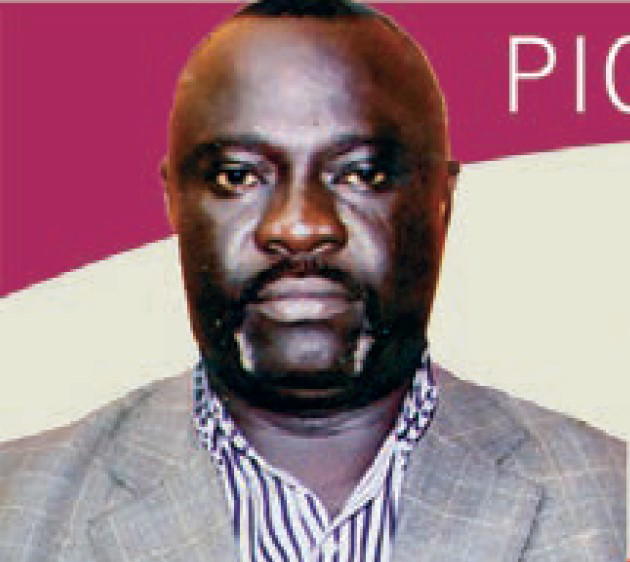
TODAY, my radar is on the Chairman of the Senate Committee on Finance, Senator Sani Musa, who, last February, said that the Senate would produce legislation from the tax reform bills aimed at making Nigeria’s economy a trillion-dollar base.
Senator Musa, among other things, also said: “And when you look at advanced economies, Mr. President has said that he wants to see Nigeria having a $1 trillion economy and this is the beginning of it, for us to do it, we must do it in a way that is not only during the time of Mr. President.
“Mr. President is only going to stay for likely eight years. And after eight years, there will be another government. So, we want a law that will outlive anybody that is there, even us that we are making the law, at the end of the day we are going to be the ones also that will have to follow what we have led.”
Attainment of a trillion-dollar economy by Nigeria is a laudable objective for politicians currently running the country to try and achieve. The sound bites are good, especially in front of television cameras and the members of the public watching. But I am old enough to see that most of the promises made by politicians, in uniform or agbada, have turned out to be mere gas. I remember a redoubtable General, who, as President, promised Nigerians housing for all by year 2000. That was in the ‘80s. He probably thought year 2000 was so far away then, but here we are in year 2025 and the housing deficit is estimated to be about 23 million units.
So when President Tinubu started talking about a trillion-dollar economy, I knew that his party men would soon latch on to it, and they have, already. But I want to remind them that growing a trillion dollar economy is not about flying agbadas in private jets to nocturnal meetings to hatch all kinds of plots; it’s about work — real, hard work.
To this end, I wish to remind the current managers of our affairs of the proverb that says if you don’t know how to dance, just imitate the person next to you on the dance floor. There is no shame in copying. I wish to commend our leaders to the history of China’s meteoric economic development, from an agrarian, backwater economy in the 1940s to the second largest economy in the world now. It is also the story of how China became the world’s manufacturing hub.
I also want our leaders to draw lessons from the life and times of Deng Xiaoping (1904-1997), the Chinese statesman, revolutionary, and political theorist who served as paramount leader of the People’s Republic of China from 1978 to 1989. I am particularly commending Xiaoping because when most people talk of China here, they mostly remember Mao Zedong (1893-1976), who led China from 1949 till his death in 1976.
Deng Xiaoping can rightly be called the architect of modern China, given the policies he formulated and pursued with vigour. The Chinese people remember his dogged implementation of the “Four Modernizations”, which were goals formally announced by China’s first premier, Zhou Enlai, to strengthen output in agriculture, industry, defence, and science and technology in China.
In particular, Deng saw that for China to catch up with the advanced world in these four areas, what must be done was to invest heavily in education, especially STEM education — Science, Technology, Engineering and Mathematics.
The result? In 50 years, China grew so fast that the world was left gaping. In an earlier edition of this column, I recalled reading a book, Who Will Feed China? by Lester Brown. China has not only achieved food self-sufficiency, but has gone ahead to develop the capability to help other countries achieve same. In the area of defence, China is coming up as a world power that can stare the US in the face as it not only has the largest number of men under arms, but has also indigenously developed military hardware that used to be owned exclusively by the US, USSR, UK, France, and Japan. It does not bear reiterating that these feats were achieved because of the investments made in education.
Currently, Nigeria has more than 20 million children out of school. Among these 20 million children are the manpower needed in the future for our defence, agriculture, automobile, computer and other critical sectors that will lift our country out of the morass.
To the faction of the power elite currently managing our affairs, I say, go to work for Nigeria. See what you can do about education in our country. It bears repetition that the quality of education here now is too low to guarantee the aspirations of Nigeria as an emerging world power. That children of the power elite are mostly schooling abroad is a testament to this.
Talking about a trillion-dollar economy is cheap; what will not come cheap is the hard work needed to attain it, and the need to keep itchy fingers away from the national exchequer. It can be seen that China has been very uncompromising about corruption; we will have to emulate China on that, even if it means the politicians will no longer have money to starch their agbada and charter jets to nocturnal meetings. TGIF.
The post Trillion-dollar economy impossible without education, by Adekunle Adekoya appeared first on Vanguard News.



